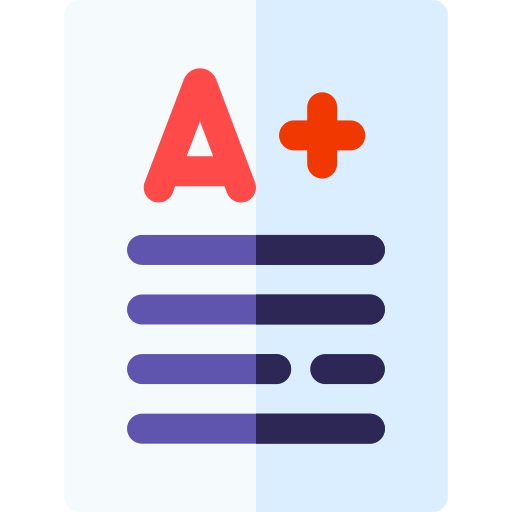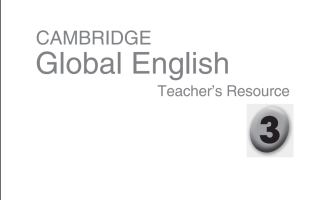دليل المعلم اللغة الانجليزية للصف الثالث الفصل الثاني
Cambridge Global English is an eight-stage course for learners of English as a second language The eight stages range from the beginning of primary to the year of junior secondary (roughly ages 6 -13). The course has designed to fulfil the requirements of the Cambridge English as a Language curriculum framework by Cambridge English Language Assessment. These internationally recognised standards provide a framework for thorough coverage of basic English concepts and skills
The materials reflect the following principles
• An "ternarionalfocus. Specifically for young learners throughout the world. the themes, and situations and literature covered by Cambridge Global English strive to reflect this diversity and help learners
find out about each other's lives through the medium of English. This fosters respect and interest in other cultures and leads to awareness of global citizenship
• An enquiry-based. language-rich approach to learning Cambrido• Global English engages children as active creative learners As learners participate in a wide variety of curriculum-based activities, they
simultaneously acquire content knowledge. develop critical thinking skills and practise English language and literacy. The materials incorvx»rate a 'learning to learn' approach, helping children acquire skills and strategies that will help them approach new learning situations with confidence.
• English fm educational success. To meet the challenges of the future, children need to develop facility with both conversational and academic English. From the earliest level, Cambridge Global English addresses both these Cambridge Global English presents authentic listening and reading texts, writing tasks, and culminating unit projects similar to those learners might encounter in English- medium and international schools. Emphasis is placed on developing the listening, svRaking, reading and writing skills learners will need to successful in using authentic English -language classroom materials At Stage 3; the basic learning strategies introduced in Stage I are deve10iRd and practised. These continue the foundations for future language learning and development
• Rich development. Building a large and robust is a cornerstone to success in IX)th conversational and academic English. Cambridge Global English exposes learners to a wide range of Many omx»rtunities for revising these words and using them in meaningful ways are woven into the activities and lesson plans
Cambridge Global English offers the following components
• The Learrrr's provides the core input of the course and of nine thematic units of study Each unit contains six lessons developed around a unifying theme. and linked to a main question at the of the unit. The materials cater for the needs of learners studying in a primary context, they feature skills-building tasks for listening, reading, writing and as well as language focuses In addition, there is a strong vcxabulary• thlilding element to the course Ways of intrexiucing basic learning awareness skills are also explored through features such as
Language tips
Words to remember
Language detective
Look what I can do
Materials are aimed at the learner with all the ex}xriences that they bring to the classroom Learners are encouraged to the moral and scxial values that exist in many of the course texts, and firui om»rtunities to reflect on these. We feel that the learner needs to exrxysed to many different forms of text topics and styles in order to develop the skills of assessing. interpreting and responding appropriately to content. Therefore the course aims to provide a variety of factual and fictional texts dialogues and Ex»etry. on a range of different topics at the appropriate level
• The Aulio CDs include all the listening material needed for the Learner's Book and Activity Book
The listening material the Learner's Book with listening, pronunciation and phonics activities as well as songs and read-along stories We recommend that learners also use the Audio CDs at home to practise the songs and stories and to show their parents what they know
The Activity provides additional practice activities deevxning the understanding of language skills and content material intrcxiuced in the Learner's Book
• The provides valuable guidarwe and support for using Cambridge Global English in your classrcx.)m. We understand that within each class there are learrwrs of different abilities. It is very imlx»rtant to sumx»rt differentiated work in the classroom and we do this through suggestions in the unit notes and additional differentiation •challenge' activities in the Activity Bcx)k. The production skills required in the project work at the end of each unit can also be graded in terms of ability. At the end of the Teacher's Resource, photcxopiable activities cross-referenced in the unit notes are provided to give additional work for each lesson _
Lesson 6 choose a project : Lesson 6 is the consolidation and prcxiuction section of the unit Learners pnxiuce a project related to the unit content. Lesson 6 with a restatement of the initial unit question and leads to a review of what has IRen learned in the course of the unit. Learner is enhanced by allowing choice. Learners choose one of three proÉcts to complete At the end of the lesson they carry out a short activity (Look H'hat I can do!) where learners can encouraged to identify and demonstrate skills they have accumulated during the course of the unit
D Activity Book
Each lesson in the Learner's Ehok is supported by two Activity Book pages that reinforce learning through activities clearly framed within the • I can' objectives of the course. The Activity Bex»k provides basic practice and reinforcement of , use of English, writing and concepts It also provides opportunities for and creative work, as well as activities that can offer a higher level of challenge to support differentiated classroom The last lesson of each unit in the Activity Book is devoted to an end- of- unit quiz, offering more in -depth assessment of what the learners have achieved
E Customising your lessons
support for planning each and teaching objectives are provided in the main unit notes of this When planning, please also tkar in mind the following
• These are ideas and guidelines only, you should adapt them to your situation and the needs of your learners Do not afraid of changing things and bringing in to the classroom additional elements of your own
• Monitor your learners. If they need additional support for some of the or particular skills work, tailor the material to their needs
• Learners of this age group need repetition and revision. Do not afraid of going over material several times We would encourage you to continue singing songs, reading stories and playing garnes throughout the year. Create routines and chants that learners can join in with
• creative in developing craft activities and role- plays. Some suggestions are given but there is much more that can d01R. Try combining English with arts and crafts classes
• Try to encourage learning /teaching fshowing between classes of different age groups
• Draw on parental support where possible. There are 'homeschcx l link' suggestions in every unit


